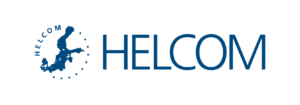This week the positive progress in management of ships’ sewage in the Baltic Sea region is further boosted by a on Port Reception Facilities (PRF) in Kiel, Germany. HELCOM keeps cleaner practices in sewage treatment a high priority on land, at sea and in ports alike. The topics of the international workshop, organized by BSH, BPO and BMUB*, cover political, technical and legal issues and ways how to address the challenges ahead, finding common solutions such as the identification of best practices and exchange of technical know-how, and promoting cooperation, among others. A major milestone was reached through HELCOM cooperation last April, when IMO agreed that the Baltic Sea special area for sewage discharges from passenger ships will take effect by latest 2021 (for most voyages). Photo: Shutterstock The Baltic was the first sea in the world to receive status as a special area for and have this status enforced by the International Maritime Organization (IMO). Set to come into effect in June 2021, passenger ships, including cruise ships, will be limited to discharging sewage into port reception facilities or alternatively at sea only after treatment with very advanced on-board sewage treatment plants able to reduce nutrient input into the sea. Passenger traffic by sea is important to the whole Baltic Sea region but it should not be a burden to the vulnerable marine environment. Sewage created by these vessels contains nutrients, such as phosphorus and nitrogen, which aggravate algal blooms and other symptoms of eutrophication, one of the main environmental concerns in the Baltic Sea area. While not the biggest source of nutrients in the Baltic Sea, ship sewage is not insignificant. With over 7.15 million person days spent on cruise ships in the Baltic Sea, and 40 million international ferry passengers per year, proper sewage disposal is important to protect the health of the Baltic Sea. Other initiatives by HELCOM partners will also be sustaining the Baltic Sea special area status for pollution from sewage. Cruise Lines International Association (CLIA) has announced of its on wastewater discharges in the Baltic Sea, to test the availability and adequacy of PRFs in the regions’ cruise ports and identify challenges and bottlenecks. In addition, Baltic Ports Organization (BPO) in its 2016 in September will focus on ports in pursuit of sustainable solutions, ship owners looking for zero emissions and Baltic environmental regulations. At the same time, HELCOM Cooperation on PRF will meet to discuss e.g. the updates for the 2014 Overview on Baltic Sea PRF. *: International workshop on PRF for the Baltic Sea as special area according to MARPOL Annex IV is organized by the Federal Maritime and Hydrographic Agency (BSH) in cooperation with the Port of Kiel and Baltic Ports Organization (BPO) on behalf of the German Federal Environment Ministry (BMUB), on 30 June–1 July 2016. * * *Note for editors is an intergovernmental organization made up of the nine Baltic Sea coastal countries and the European Union. Founded in 1974, its primary aims as a governing body are to protect the marine environment of the Baltic Sea from all sources of pollution, as well as to ensure safe maritime navigation. The official name of HELCOM is the Baltic Marine Environment Protection Commission; it is the governing body of the Helsinki Convention. * * * For more information, please contact:Hermanni Backer Professional Secretary for Maritime, Response and Fish groups HELCOM Tel: +358 46 8509199 Skype: helcom02 E-mail: hermanni.backer(at)helcom.fi
Challenges ahead from political, technical and legal perspectives and common solutions will be discussed in an international workshop on Port Reception Facilities for ships’ sewage in Kiel, Germany.

